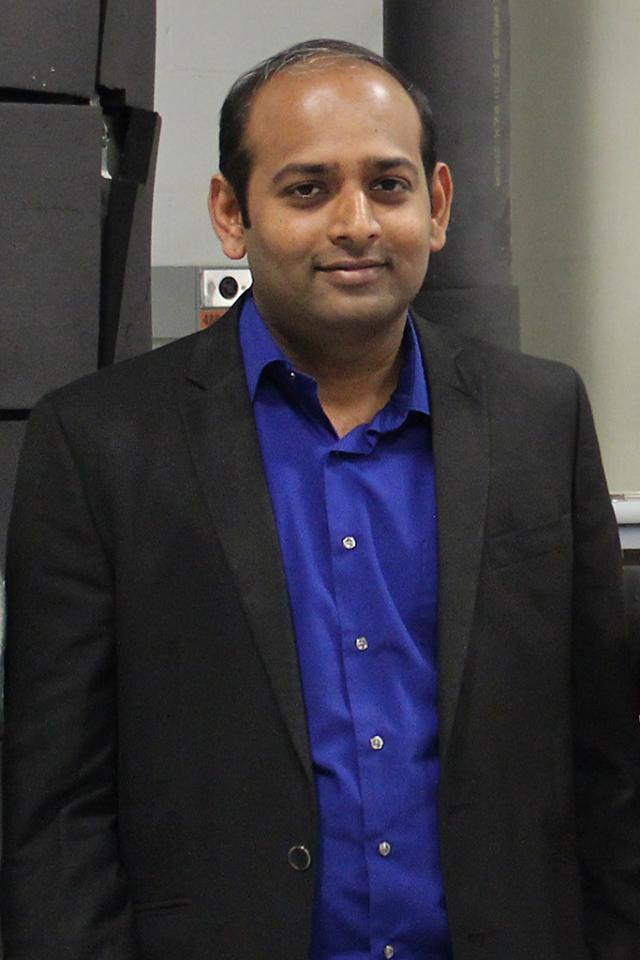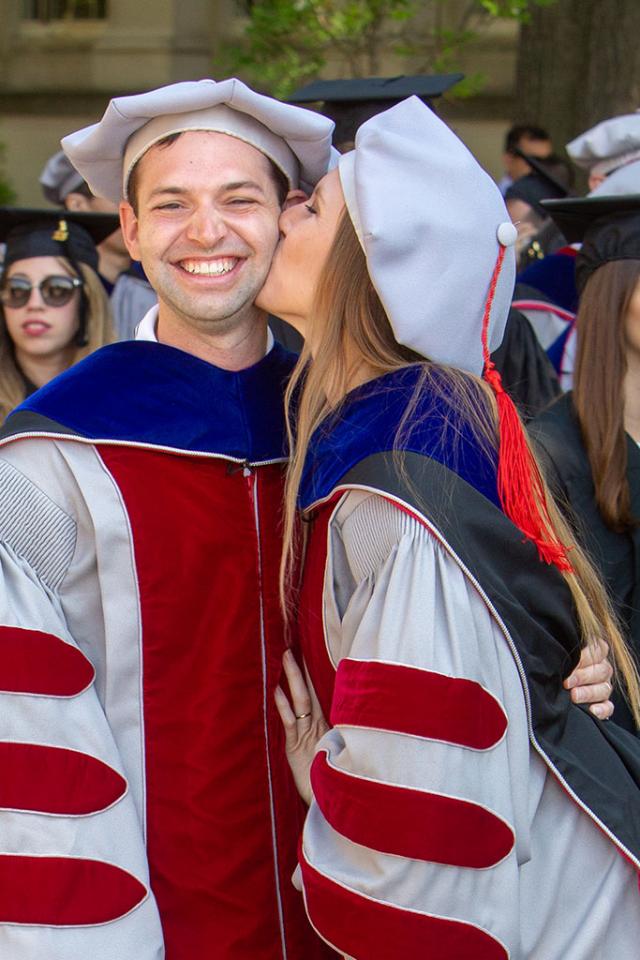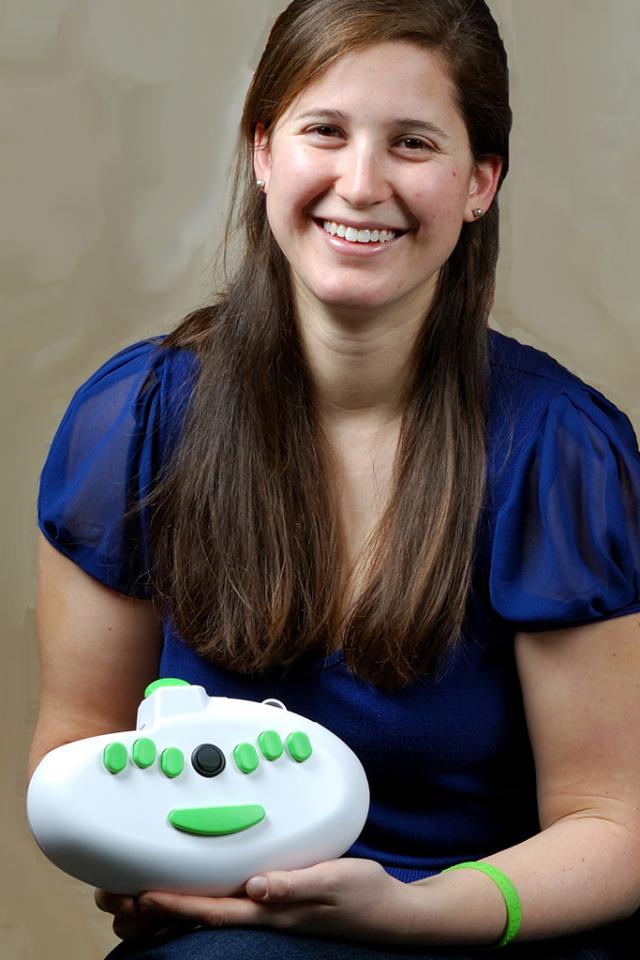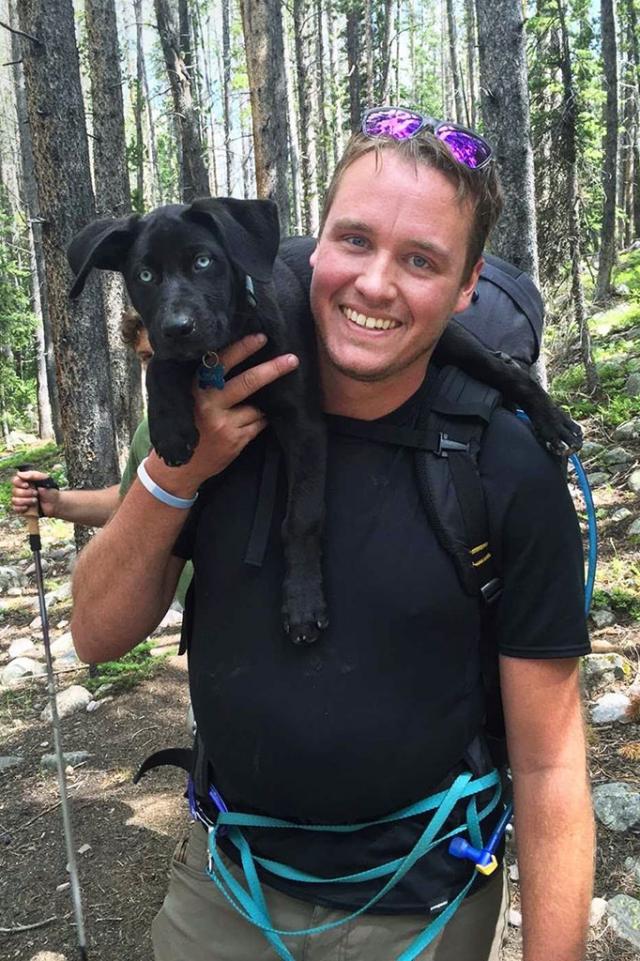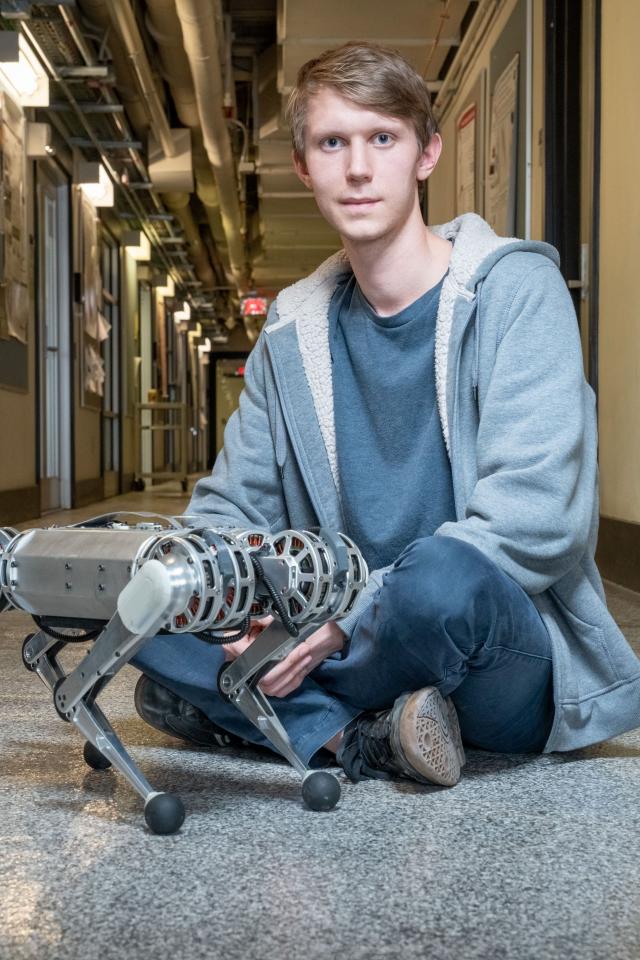Ta Corrales
A labyrinth of rooms stretches across the third floor of N51, the weathered gray building that has long housed the MIT Museum. The rooms look more like a handyperson’s workshop than a scientist’s lab. There’s woodworking equipment, metalworking equipment, hammers, wrenches, and dozens of boxes just for storing bike parts. Cookstoves line a windowsill. Pots that cool food through evaporation from a surrounding layer of wet sand occupy a hallway. Hanging from the ceiling, there’s a floatable bike that’s suspended above four pontoons, so a rider would pedal just above the water’s surface. This is D-Lab.
Ask different members of D-Lab what the D stands for, and you’re likely to get a variety of responses. Often, people say “design” or “development.” At one point, the D was a placeholder for a whole phrase—“Development through dialogue, design, and dissemination.” Ta Corrales ’16 adds another D word to the list: “D-Lab derails students,” she says, “and that was me, too.”
Corrales was a first-year undergraduate from Costa Rica when she discovered this eclectic enclave within MIT, where 26 staff members support 15 classes that teach MIT students how technological innovation can bring people together. The students, in turn, teach others in less-developed areas how to build tools that will simplify their lives. D-Lab works in more than 25 countries on five continents to help raise standards of living. By the end of her sophomore year, Corrales decided that instead of pursuing her first love, chemistry, she would make D-Lab’s work the basis for her career.
Solving problems
Today, five years after graduating from MIT with a degree in mechanical engineering (and a minor in chemistry), Corrales is a leader at the OAXIN Innovation Center, a nonprofit organization in the Mexican state of Oaxaca. OAXIN was founded in 2019 after 32 academic, nonprofit, and government partners, including D-Lab and MIT Enterprise Forum Mexico, collaborated to identify ways to build up the regional economy. Today, around 10 OAXIN members run workshops in which locals and visiting MIT students design and build tools for Oaxacans to use. Workshop participants say they come away feeling connected to their communities and empowered to solve technological problems. Often, they contribute to the local economy along the way.
At the start of a typical five-day workshop, 25 participants discuss Oaxacans’ biggest needs and vote for five to focus on. Participants might say they want to prepare food more quickly, avoid inhaling smoke while cooking, or light their homes at night. After they choose which issues to address, Corrales leads locals through a design process in which they brainstorm technology, build prototypes, see what works well and what needs improvement, and then repeat the process. Small groups of MIT students sometimes travel to Oaxaca to join in, and those who do often prototype solutions back in the lab at MIT.
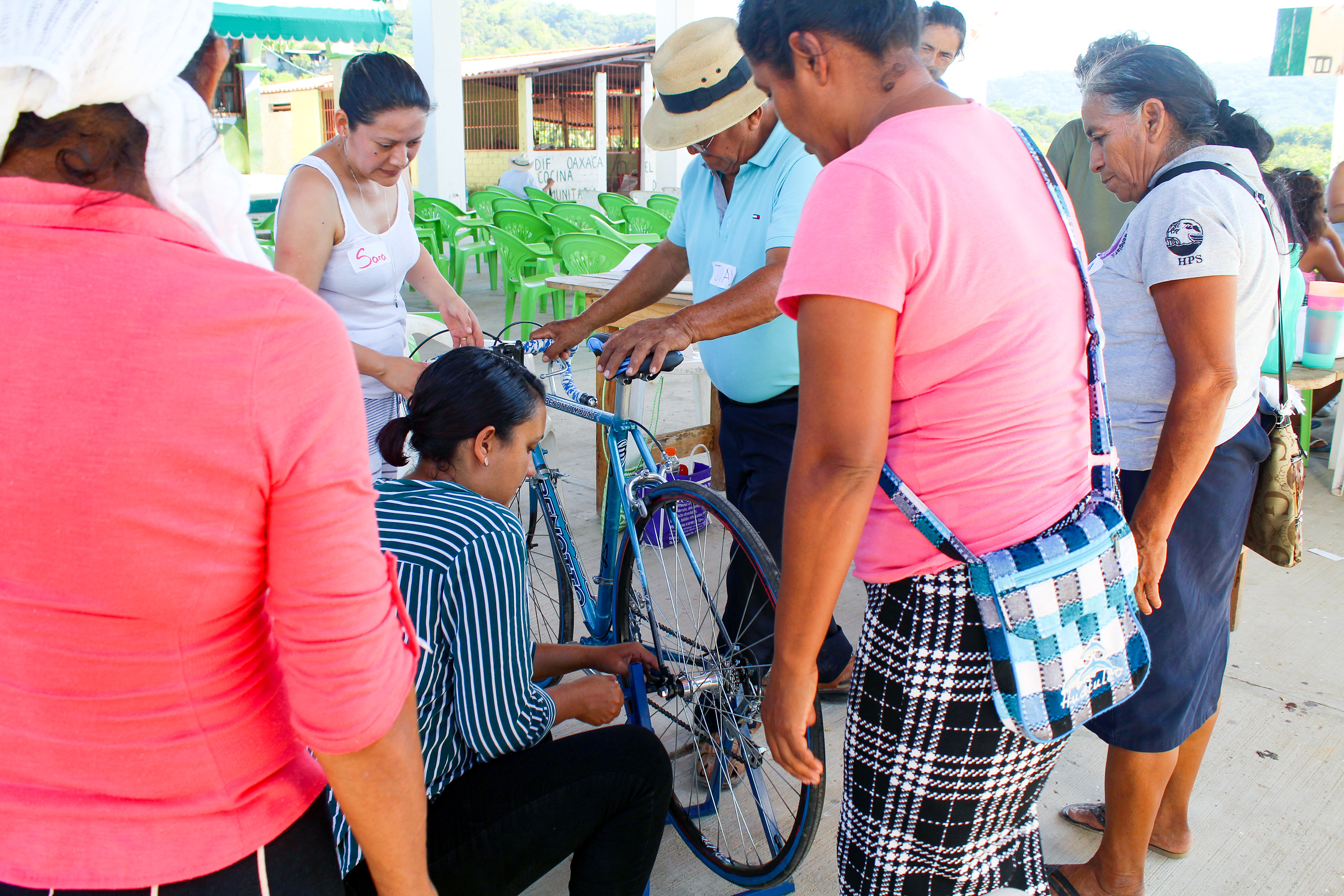
“Ta Corrales showed us that for a community to become prosperous, it has to understand how to manage technology,” Enoc Ramírez, a former workshop participant, says through a translator by text message.
Ramírez has enjoyed working with tools since he was a kid, and he’s long built machines like agave grinders and lawn mowers. During his first workshop with Corrales in 2018, he learned a framework for researching design strategies, prototyping, and improving his designs that made his job as an inventor and welder much easier and more efficient. Now he runs workshops through OAXIN as well as fixing and creating tools in his business.
Recently, he helped a group of women speed up fish processing by helping them design a knife with a blade that’s optimized for descaling the fish on one side and cleaning them on the other. He hopes that learning engineering and design skills in the workshops that he and Corrales run will give Oaxacans more job opportunities and prevent young people, like his two children, from needing to immigrate illegally to the United States, as he once did.
Inheriting activism
Corrales comes from a line of what she calls “activist women.” Her grandmother runs a cooperative that offers education and micro-loans to women who want to start businesses around their hometown of Los Lagos, Costa Rica. When Corrales was growing up, her mother ran a school for children with learning disabilities who came from underserved communities. Corrales’s name comes from both of them. Her mother chose Tachmahal, which to her means “treasure” (and which her sister shortened to “Ta” when they were young). And her grandmother suggested her middle name, Marie, in honor of pioneering chemist Marie Curie. Corrales intended to follow in Curie’s footsteps as a chemist, but she also knew she wanted to uphold the family tradition of promoting social justice.
Corrales didn’t see herself as an engineer when she started college. That changed in her sophomore year, during a D-Lab trip to Arusha, Tanzania. Farmers in the region were using a laborious process to separate plants’ seeds from their stems by hand, and Corrales helped them build a bike-powered thresher so that they could process crops such as maize and beans more quickly.
“Ta Corrales showed us that for a community to become prosperous, it has to understand how to manage technology.”
Growing up, Corrales shied away from power tools, thinking they were only for men. But her time in Tanzania proved that she could, in fact, use tools just as well as anyone else. “There’s a change in self-perception that occurs when you find yourself able to invent something,” she says.
Back at MIT, Corrales switched her major to engineering. She was only a few classes shy of earning a chemistry degree, and the move meant an extra six months of school, but it felt right. She knew she’d found her niche.
Corrales became a skilled engineer and soon found herself holding the title of “Chief MacGyver.” D-Lab lecturer and associate director of academics Libby Hsu, MEng ’10, SM ’11, says she once saw Corrales whip up a waterproof lantern out of materials lying around in one of the Mexican towns where they were working. “Everyone sees her as this amazing tinkerer,” Hsu says.
Innovating on a shoestring
Giacomo Zanello, an associate professor in the School of Agriculture, Policy, and Development at the University of Reading in the UK, says there’s a growing awareness of the value held by simple innovations like Corrales’s lantern. “You don’t need to go to the moon to be innovative,” he says, adding that having users of a technology drive the process, as D-Lab does, is catching on as a valuable way of motivating change.
In Oaxaca, Corrales has helped locals develop several inventions, including a press for a thin, crispy kind of tortilla called a totopo that’s made only in this region. Standard tortilla presses don’t press dough thin enough to make totopos, which have traditionally been stretched and shaped by hand. A custom press that Corrales helped create increased the locals’ production capacity substantially.
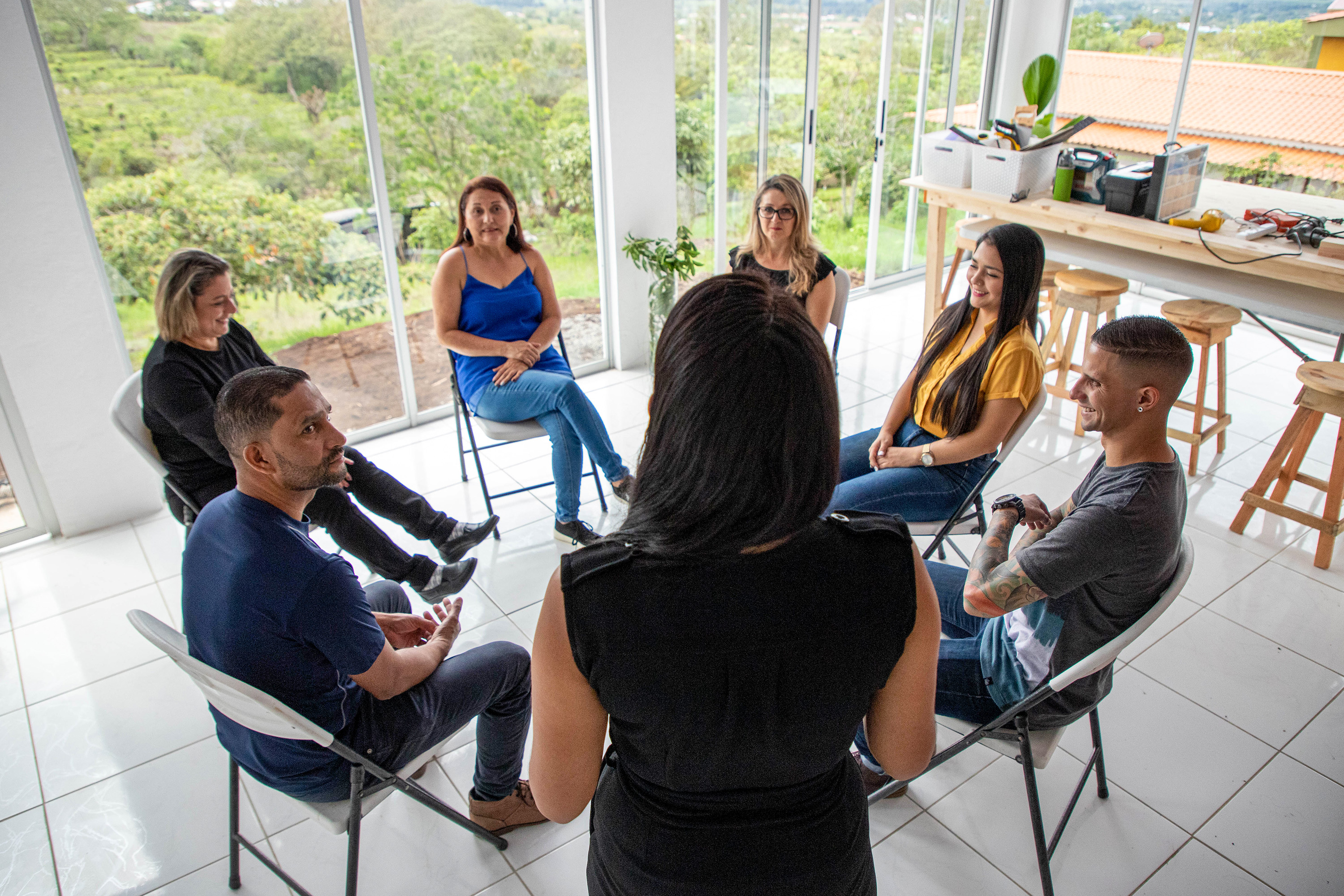
These days, Corrales is taking the inclusive spirit of D-Lab worldwide through a company called Smith Assembly that she founded in the spring of 2020 with fellow engineer Liz Hunt. With this new company, Corrales and Hunt are offering team-building workshops to English-speaking companies. With Smith Assembly’s help, coworkers design and create tools or art projects in workshops similar to those Corrales leads in Oaxaca. For example, workshop participants can make traditional Oaxacan dolls shaped like fantastic or mythical creatures.
During the covid-19 pandemic, Smith Assembly’s remote workshops have helped participants innovate using common materials like pencils, cereal boxes, and prescription-bottle caps. The company is building connections even between socially distanced coworkers.
Corrales has been living with her family in Costa Rica during the pandemic, but that doesn’t mean she’s left Oaxaca behind. She and other members of OAXIN have shifted to running pandemic-focused workshops remotely through WhatsApp text messages and audio segments. For example, many coastal communities in Oaxaca focus their food production on fishing, while relying on fruit and vegetables imported from other parts of Mexico. In the early days of the pandemic, vegetable supply chains were disrupted, leaving little to buy at city shops or village markets. OAXIN ran a WhatsApp-based workshop to teach people who knew little about gardening how to grow vegetables in their backyards.
“[Before the pandemic] if you had asked me if we could do this virtually, I would have for sure said no,” Corrales says. But in true D-Lab spirit, she and her collaborators innovated and found a way forward.
As vaccinations become available, Corrales is hoping to begin traveling and running Smith Assembly workshops in person, but for the moment, she’s staying in Costa Rica and continuing to work online.
OAXIN has recently started a new project helping Oaxacans commercialize traditional textiles by selling shawls through an online marketplace. As Smith Assembly becomes busier, Corrales has shifted her efforts in Oaxaca away from running workshops and toward quantifying the effects those workshops have had on participants’ daily lives and incomes. Two Oaxacan totopo producers agreed to act as in-depth case studies, and with the data collected, Corrales has found that the presses save each totopo maker two hours of labor per day and increase production capacity by 50%.
It’s just one example of how technological innovation can bring people together to solve small daily problems on the ground—or in the kitchen.

